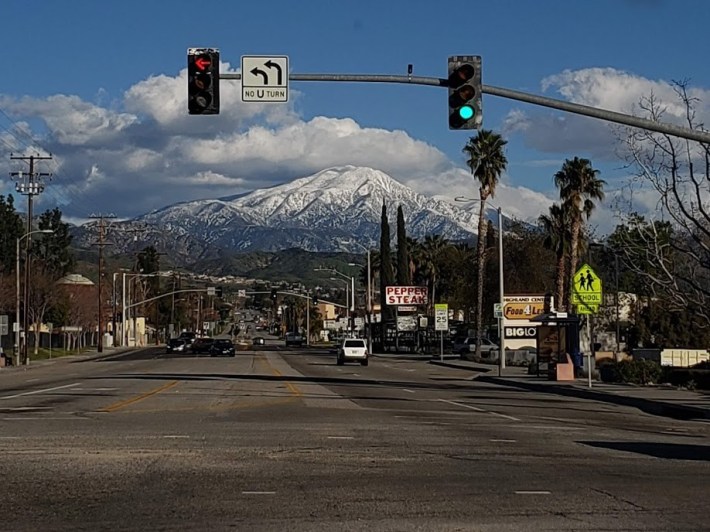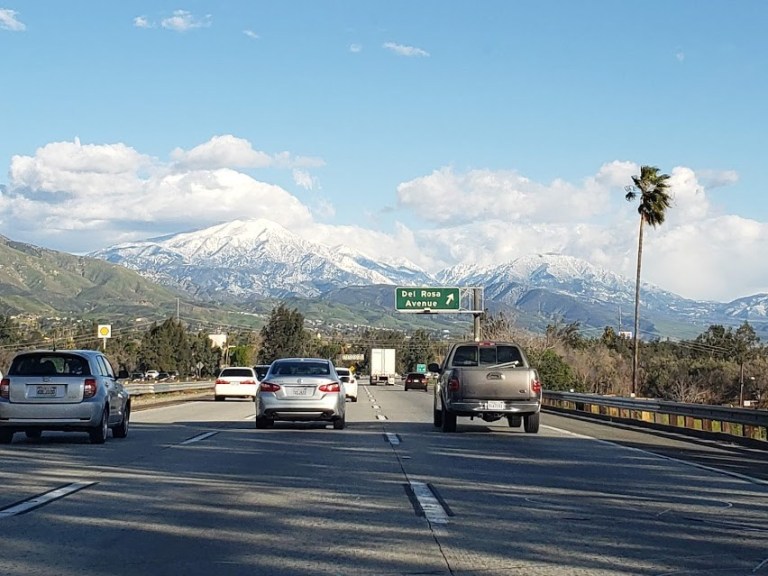[dropcap size=big]T[/dropcap]hey’re familiar webpages on my browser nowadays, mortgage calculators, and real estate listings that always seem pretty bleak if I’m looking to buy in L.A. County. See, ever since I turned 25, which was two years ago (read Millennial), I have been obsessed with buying a house mostly because well, my family lost our home.
During the summer of 2015, I studied abroad in Europe as a Cal State Fullerton student. It was the best time of my life and, arguably, the worst time. During that summer of 2015, I lived in a budget motel for a month off the 5 freeway with my dad, his girlfriend at the time, and her son. I took out a small student loan and packed my bags to study abroad in Europe while calling a shared room in a budget motel that housed impoverished families with young children and sketchy-ass cholos home.
I left my family behind for them to figure out a place to live that summer. Call it selfish, but I have no regrets of getting away from the aftermath of my parents’ nasty, years-long divorce and reluctant sale of their house in Whittier that they owned for over 20 years. The house I grew up in, the only financial asset my immigrant parents had and the only beacon of good ol’ American generational wealth my brother and I could have inherited, was sold to avoid a looming foreclosure. At least we dodged that bullet. My immigrant, refugee, working-class family went from having the American dream to seemingly losing it all overnight, or over divorce rather.
I don’t know much of the details, but I know whatever my parents got from the sale, they lived off for a few years until the money dried up. My parents had each lost the safety net that was their fixed cost of living and had fallen into the mercilessness that is the ever-increasing high cost of living in Los Angeles County. Their stagnant salaries could not keep them afloat, let alone allow them to repurchase a house in Whittier, which had now turned into a city for mostly affluent home buyers, not working-class ones. While Whittier had always been a sort of Latino Beverly Hills (a title it recently lost to Downey), it had ever done a good job of sharing space with its poorer residents, too, thanks to the town’s friendly Quaker roots. But now, as Whittier is starting to look more and more manicured and Pasadena-esque, the residents’ racial and socio-economic makeup is beginning to look a lot different too.
Leaving Los Angeles because I was too poor for it broke my heart. It made me feel a little ashamed at first. I had repped Whittier, the 562, and L.A. so hard for 25 years of my life that moving away felt like a mini identity crisis at first.
As newly economically displaced folks, my dad ended up finding the backroom of his small business in Pico Rivera. It was a decent place to live and save on rent while I rented and shared a small apartment with my mom in Whittier. Then, I finally decided to move my mom and me into my brother’s house in San Bernardino to get a respite from the high rent and tight living arrangements. My older brother is the only one in my immediate family who has a robust middle-class salary and a healthy bank account. Still, even he has had trouble finding a house he can afford in Whittier unless he decides to find a partner to help with the costs. This put my bachelor brother in a predicament as Los Angeles County homeownership seems impossible with a single income.

He settled for a house by Cal State San Bernardino until he realized how dangerous San Bernardino could be in some parts, and sold it as soon as he reasonably could. Just like L.A., not all of the, I.E. is for the faint of heart. He figured he’d wait for a recession and a housing market crash to buy closer to Whittier soon (I guess his wishes are very close to being answered thanks to the COVID-19 pandemic.)
While my brother continues to plot his way back to Whittier, I have grown to enjoy my time in the Inland Empire thanks to my boyfriend, a sweet White boy from Corona who I met through my roommate in Europe—funny how life works in strange and mysterious ways.
Leaving Los Angeles because I was too poor for it broke my heart. It made me feel a little ashamed at first. I had repped Whittier, the 562, and L.A. so hard for 25 years of my life that moving away felt like a mini identity crisis at first. I was also angry at how Brown and Black folks always seem to be the first to get displaced out of their long-time hoods in L.A. I was angry that there weren’t any safety nets in L.A. for people like my family who fell on hard times.
I felt like the place I was born and raised in stopped loving me as much as I loved it as soon as I couldn’t afford it anymore–how’s that for an unrequited romance? Slowly, I got over it when I saw the difference in rent, and home prices in the I.E. Shit, a girl’s gotta eat and have a pinche roof over her head, I just never thought that would be in the desert.
I had heard about the “I.E.” beforehand because as a desert wasteland home to meth addicts, a stereotype that I'm sure other people from L.A. have heard. But, that simple stereotype doesn’t even begin to describe this growing region’s fascinating vibe.
When I first moved to San Bernardino, I saw Dodger flags and hats worn by my new and more racially diverse neighbors. I never realized how semi-segregated L.A. County neighborhoods truly are until I moved out here and felt and saw the difference. My new neighbors had similar stories to mine, which got me to thinking—did I move out of Los Angeles to the Inland Empire, or did L.A. move itself to the I.E.?
Still, the vibe is more relaxed, and the people are a lot more humble in the I.E. Folks out here are not in that much of a rush, and they don’t think they’re too cool for you because the hustle and bustle and self-important filled vibe of “making it” in L.A. are non-existent here.
I cannot keep count how many people I’ve met out here who grew up L.A. as fuck but found themselves moving east because of financial stress in the west. One of my former bosses in the I.E., a Whittier native, bought herself a gigantic quintessential suburban house in Beaumont and has no regrets about it.
When I started frequenting Corona, I saw Angels hats and flags everywhere and quickly found out that many of that city’s residents are Orange County transplants. San Bernardino residents have origin stories from South Central, Compton, and Watts. Claremont is basically I.E.’s version of Pasadena. Rancho Cucamonga kind of feels like Cerritos. You get the point.
A lot of comparisons to L.A. can be made. Still, the vibe is more relaxed, and the people are a lot more humble in the I.E. Folks out here are not in that much of a rush, and they don’t think they’re too cool for you because the hustle and bustle and self-important filled vibe of “making it” in L.A. are non-existent here. Most Inland Empire residents are working-class people with humble roots and humble character who would stop to help you out more and with less hesitation than an L.A. head would, in my experience. Side note: you’ll also find out which friends and family are down to visit you or who will start to treat you like an out-of-state resident once you move out here.
Another fascinating thing about the I.E. is that it’s a politically purple land with blue and red neighborhoods within blocks of each other—so political bubbles are rare, and you have to step up your activism. The I.E. also has more biracial couples, babies, families, and Black and Brown unity than I ever remember seeing in L.A.
I predict more and more indie artists, especially of color, flocking to these areas as L.A. becomes increasingly more cost-prohibitive to live in.
I also grew a deeper appreciation and awareness of the agricultural industry thanks to some experiences I had with farmworkers in Indio and Thermal whose cracked and stiff hands will forever be sketched in my memory. My coworker in San Bernardino grew up as a child farm laborer alongside her Mexican family and shared with me the tragedies she witnessed growing up on the fields. Her family now owns a small farm in Hemet, and she’s a senior bioengineering student at UCR.
Downtown Riverside and Redlands have a rapidly growing food scene with lots of potential for an equally thriving art and music scene. I predict more and more indie artists, especially of color, flocking to these areas as L.A. becomes increasingly more cost-prohibitive to live in.
But my favorite part about the Inland Empire is the gorgeous and humbling views of the grand and majestic mountains just above the desert. These beautiful sights penetrate through any lousy smog days. The golden purple sunsets overlooking the giant mountainscapes are my favorite part about the I.E., a unique place that humbles you with its people and mountains.
So consider driving eastbound sometime and venture into the rapidly growing lands known as the Inland Empire—I sure did, and I found that it’s not so bad out here; it might actually be better.






